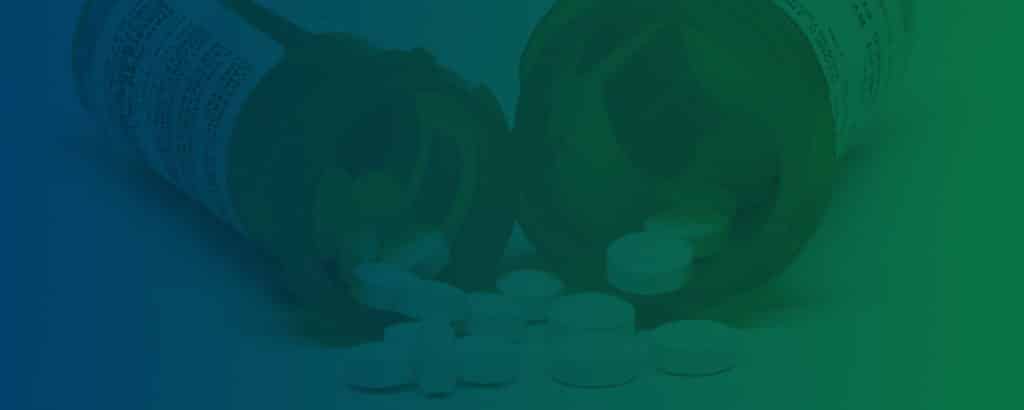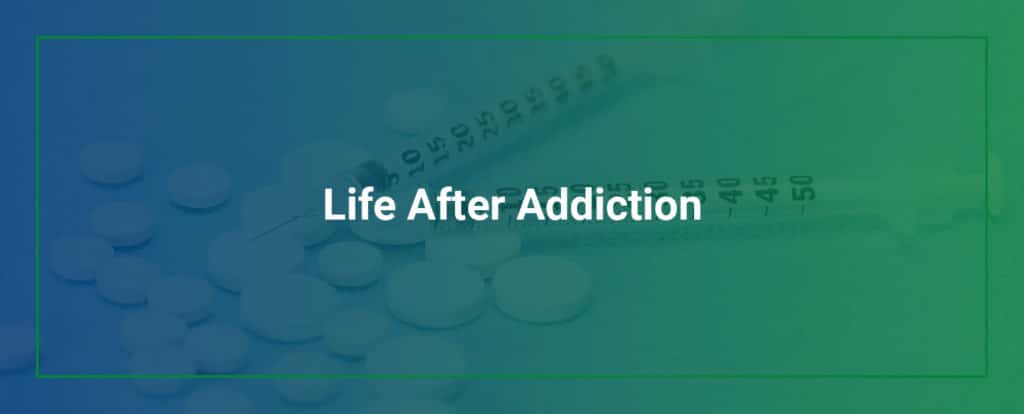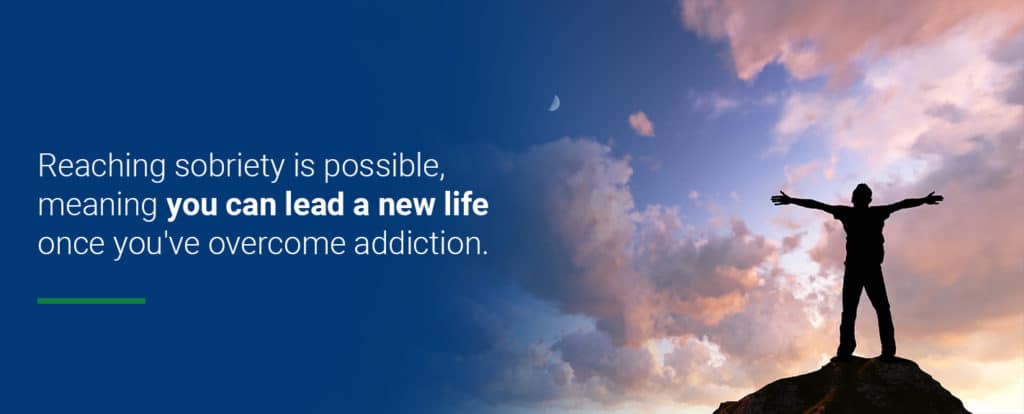In 2020, the Substance Abuse and Mental Health Services Administration (SAMHSA) reported that over 40 million Americans struggle with a substance use disorder. The opioid epidemic’s growth has increased the number of people who struggle with substance use, and the COVID-19 pandemic has expanded addiction risk factors.
Some people believe having a successful life after addiction is impossible, but that’s far from the truth. Many people find success through addiction substance recovery treatment and live fulfilling lives after overcoming their addiction. Most people who seek treatment and continue their care can find success in their recovery.
Sobriety Is Possible
The opioid epidemic in the United States has claimed over 1 million lives from 1999 to 2020. In 2021, the CDC reported over 98,000 fatal drug overdoses. While these findings may seem grim, most people do recover from addiction.
There is a common misconception that substance use disorders are lifelong conditions that eventually lead to death for the afflicted individual. People often only see the graphic depictions of addiction, such as drug-related crimes or their loved ones’ lives falling apart due to substance misuse. The stigma, alongside the difficulty of treating addiction, creates the perception that addiction recovery is hopeless.
However, 75% of people with a substance use disorder are currently recovering or have recovered, including individuals with severe addictions. People are constantly recovering and leading fulfilling lives. They’re starting new jobs, buying their own homes and making strides to improve their lives. Despite the depictions of addiction as a lifelong affliction, sobriety is more than possible.
While people recover at varied rates, most individuals thrive in long-term recovery. These people are doing more than just surviving their addiction — they’re thriving in the newfound opportunities sobriety offers.
Life After Addiction Is Obtainable
Reaching sobriety is possible, meaning you can lead a new life once you’ve overcome addiction. You can take multiple avenues to facilitate a successful recovery, which we’ve outlined for you below:
- Treatment programs: When someone seeks recovery through a treatment facility, they’ll often be enrolled into a personalized treatment program. These programs combine multiple services, such as individual or group therapy, overdose education and relapse prevention, to provide a well-rounded treatment plan for individuals trying to overcome addiction. These programs often address co-occurring disorders, such as substance use and mental health disorders, to effectively treat addiction and achieve the best possible outcome. Treatment programs also offer continued care once recovery is accomplished to prevent future relapse.
- Medication-Assisted Treatment (MAT): MAT programs use medications as part of a treatment plan, such as methadone treatment. Such medications treat the physical and psychological symptoms associated with withdrawal so patients can address underlying conditions or causes that contribute to their substance misuse. Patients will often undergo counseling at the same time as a MAT program. MAT can be used with medical supervision to help patients through the first few days of withdrawal but can also be administered by outpatient programs.
- Counseling: Patients can participate in individual or group counseling, though some may do a combination. The goal of counseling is to help patients understand and address underlying conditions that play a factor in their addiction. Some people struggle with mental health disorders and use substances to cope with their symptoms. Others are influenced by life stressors or peer groups. Through counseling, patients will learn healthy coping mechanisms and skills to address stressful or uncomfortable situations. They’ll also find support from their counselor and other group members who understand and relate to their challenges.
- Role models and support systems: Having role models and a robust support system is vital for addiction recovery. Role models provide an example to follow, while a support system allows patients to seek help from friends or family members when in a triggering situation. They can call a member of their support network when they need emotional help or need to vent about their challenges. A support system also prevents feelings of loneliness, which is a risk factor for addiction.
- Goal setting: Setting specific goals helps patients feel accomplished during and after treatment. During treatment, they may set goals to open up more during counseling or learn specific coping skills for their unique circumstances. After treatment, they may create goals to check in with their counselor or reach one full year of sobriety. Their objectives may also relate to curating new hobbies or passions they discover after addiction. These aims give patients something to continuously reach for, even once their official treatment has ended.
- Lifestyle changes: Making lifestyle changes can help individuals recover from addiction. Creating healthy habits, such as eating a nutritious diet and exercising regularly, can help people stay sober. These healthy lifestyle choices also provide coping mechanisms for various triggers and stressors.
Hobbies, Interests and Programs to Get Involved In
People who recover from addiction likely have more time on their hands now that they’re not seeking or using drugs. Finding hobbies or activities that inspire you is an excellent way to create a fulfilling life after addiction. These new passions can also prevent negative emotions that contribute to a higher chance of relapse. You can even meet like-minded people who can become a vital part of your support system. Some hobbies you can get involved in include:
- Yoga
- Meditation or mindfulness
- Hiking
- Sports
- Gardening
- Painting
- Journaling
- Cooking
There are many other hobbies you can choose from, and you should look for an activity that sparks your interest. These hobbies build valuable skills, such as communication and problem-solving, and they create healthy coping mechanisms to help prevent relapse.
Besides hobbies, individuals who have recovered from addiction can participate in 12 step support. Twelve step support consists of groups specializing in specific addictions, such as alcohol or opioids. You can connect with individuals who have undergone similar experiences with addiction and talk about your recovery, vent about your challenges and ask questions.
Twelve step programs offer various benefits, including:
- Accountability: One of the main benefits of 12 step programs is their ability to hold participants accountable in their recovery. People who participate in 12 step programs are less likely to struggle with relapse.
- Routine: The structure that 12 step programs provide prevents cravings that can cause relapse. Meeting regularly with other people keeps you busy and grounded, so cravings and urges become less bothersome.
- Community: These programs allow you to speak openly about your addiction in a sober environment. Finding a sober support network can be a challenge for people in recovery, but 12 step support programs offer a sober community to assist with stress and other triggers. They also allow you to build relationships with others who have similar experiences.
- Commitment: Going to meetings regularly reinforces your commitment to recovery. You’re reminded of the hard work you put in to recover and the benefits of staying sober. Renewing your commitment at each meeting invigorates you to continue using healthy coping mechanisms to manage cravings and triggers rather than relapsing.
Utilizing various hobbies and 12 step support programs can help you lead a successful life after addiction.
Reach out to HCRC to Get Started
The first step toward opioid addiction recovery is reaching out for help. Health Care Resource Centers (HCRC) offers MAT programs for our patients to facilitate sobriety after addiction. Through our MAT and counseling programs, we’re dedicated to giving you the life you deserve. Our counselors have over three decades of experience in providing quality care and support.
We have multiple treatment facilities across the New England area so that you can find a treatment program close to home and your existing support system. Get in contact with our team today to learn more about our treatment services.







